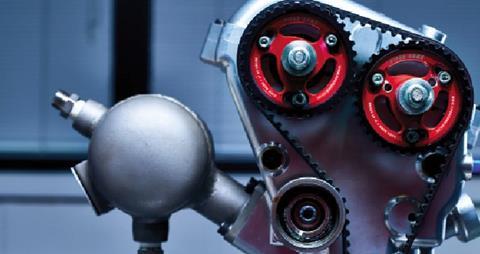
Liquid nitrogen is fun stuff. Like a frosty Midas touch, it has the ability to instantly freeze whatever comes into contact with it. It’s well used in science and medicine, and in entertainment too. Film buffs will remember it as the substance in Terminator 2 that nearly defeats Arnold Schwarzenegger’s robot nemesis, the T1000.
But for UK tech company Dearman, it’s fuel. The Croydon-based firm is growing in the food industry with its patented Transport Refrigeration Units (TRUs) that generate sub-zero temperatures in lorry cargo using liquid nitrogen engines to keep food and fresh produce at the right temperature.
In May it announced a new partnership with Marks and Spencer to kit out 15 of its lorries with liquid nitrogen-powered refrigerators, having completed a successful trial with Unilever last month, prompting chief executive Paul Polman to tweet his praise.
Special projects director David Rivington says the company is expanding as CO2 and diesel fall foul of environmental targets. “Taking one diesel TRU off the road is the same as taking 30 lorries of the road. The focus is often on CO2, but what’s actually damaging to people’s health is the particulate matter from diesel engines,” Rivington says. “Liquid nitrogen is completely clean and it’s also really quiet. Diesel TRUs are very noisy.”
Rivington says increasing numbers of shops in urban locations will place a higher premium on quiet, clean delivery means: “The large number of small stores and smaller shopfronts means there are more deliveries, you have more store openings and smaller deliveries.
“These stores don’t have storage space so they need to replenish more frequently – that’s something driving the trend towards a larger fleet. The trend is with smaller shops in neighbourhoods.”
Furthermore, in increasingly crowded cities across the world, Dearman engines help combat heat pollution too. Rivington says: “The key issues with diesel engines is noise, dirt and heat. In places like Mumbai, for example, the amount of heat from diesel engines is huge. Our engines are - 200°C.”
Despite getting strong backing from the British government, receiving£6 million in funding, countries like China and the US are responding with more urgency to Dearman’s product, according to Rivington.
“England doesn’t like to have a heavy hand in regulations. Defra seems to want to make an evidence-based decision whereas in California they just want to be clean.”
Other companies have utilised a similar method of cooling with liquid nitrogen, including Blueeze in France and natureFridge in Ukraine, but Dearman feels its design will win out in the long run.
In the future Rivington thinks the technology will be rolled out on a much larger scale. “To date we make all our engines ourselves in Croydon, but our parts are constructed across Europe. I think what you will see is more of these engines in cities, and it’s cities that are taking the lead with this.
“All you need is liquid nitrogen at your base. When you need more you can bring in another tank, so the infrastructure scales up quite easily.”






No comments yet